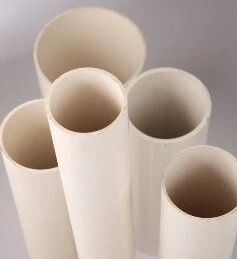Dec . 29, 2024 10:43 Back to list
High-Density Polyethylene Drip Irrigation Tubes for Optimized Water Distribution Systems
Understanding HDPE Drip Pipe A Sustainable Approach to Irrigation
In recent years, the agricultural sector has witnessed a significant shift towards sustainable practices. One of the pivotal innovations in this domain is the use of High-Density Polyethylene (HDPE) drip pipe systems. As modern farming techniques evolve, HDPE drip pipes have emerged as an efficient and environmentally friendly solution for irrigation, addressing the pressing need for water conservation and efficient resource management.
What is HDPE Drip Pipe?
High-Density Polyethylene (HDPE) is a thermoplastic polymer made from petroleum. It is highly durable and resistant to a range of chemicals and environmental factors, making it ideal for various applications, including piping systems. HDPE drip pipes are specifically designed for drip irrigation, a method that delivers water directly to the plant's root zone in a controlled manner. This targeted delivery reduces water waste and promotes optimal plant growth.
Advantages of HDPE Drip Pipes
1. Water Efficiency One of the most significant benefits of HDPE drip pipes is their ability to conserve water. Traditional irrigation methods often lead to water runoff and evaporation, where much of the water never reaches the plants. Drip irrigation, on the other hand, minimizes these losses by supplying water directly to the soil, ensuring that it is utilized effectively.
2. Cost-Effective While the initial installation of HDPE drip pipes may require a sizable investment, the long-term savings are substantial. By reducing water usage, farmers can decrease their water bills and lower the energy costs associated with pumping water. Additionally, the durability of HDPE means lower maintenance and replacement costs, contributing to overall financial savings.
3. Enhanced Crop Yield and Quality With precise water application, plants receive the optimal amount of moisture they need to thrive. This not only fosters better growth but also improves the quality of the produce. Crops grown with drip irrigation often show increased resistance to diseases and pests, leading to healthier yields.
hdpe drip pipe

4. Environmental Benefits Using HDPE drip pipes is an environmentally responsible choice. The reduced water consumption helps in conserving precious water resources, especially in regions prone to drought. Moreover, the material is recyclable, and modern manufacturing processes are increasingly focused on sustainability.
Installation and Maintenance
Installing an HDPE drip pipe system requires careful planning and design. Farmers must consider factors such as soil type, crop requirements, and the overall layout of the agricultural land. Consulting with irrigation specialists can ensure the system is tailored to specific needs, maximizing efficiency and effectiveness.
One of the attractive aspects of HDPE is its low maintenance requirements. However, regular checks are essential to prevent clogging and ensure that the system functions efficiently. Routine inspections of the supply lines and emitters can help in detecting any issues early, thus avoiding costly repairs and water wastage.
Applications Beyond Agriculture
While HDPE drip pipes are predominantly used in agriculture, their applications extend beyond growing crops. These systems are increasingly being used in landscaping and horticulture, particularly in urban settings where water conservation is critical. Additionally, they find applications in greenhouses and nurseries, contributing to sustainable practices across various sectors.
Conclusion
The adoption of HDPE drip pipe systems exemplifies the innovative strides being made in sustainable farming practices. As global challenges such as water scarcity and climate change escalate, the efficiency and effectiveness of HDPE drip irrigation systems stand out as a beacon of hope. Farmers adopting these systems not only enhance their productivity but also contribute to a more sustainable future. Through continued investment in technology and sustainable practices, we can work towards a greener, more efficient agricultural landscape. Embracing HDPE drip pipes is not just an investment in productivity; it's a commitment to conserving our planet’s resources for generations to come.
-
PVC Grey Sheet for Extraction: Chemical Resistant & Durable
NewsAug.19,2025
-
Durable PVC Pipe Fittings for Plumbing & Irrigation Needs
NewsAug.18,2025
-
HDPE Steel Belt Reinforced Spiral Corrugated Pipe | High Strength
NewsAug.17,2025
-
HDPE Pipe Fittings: Durable, Leak-Proof Solutions
NewsAug.16,2025
-
Premium CPVC Sheet: High-Temp & Chemical Resistant Solutions
NewsAug.15,2025
-
Durable PPR Pipe for Hot & Cold Water Systems - Easy Install
NewsAug.14,2025

